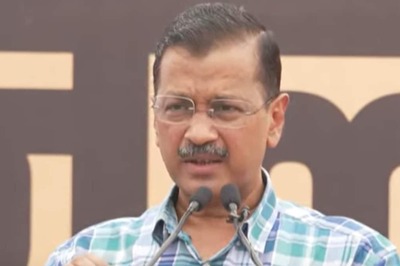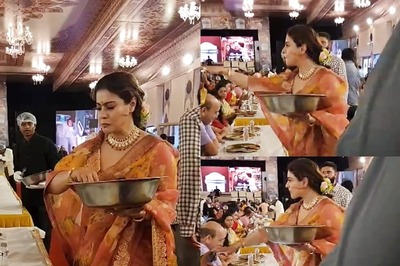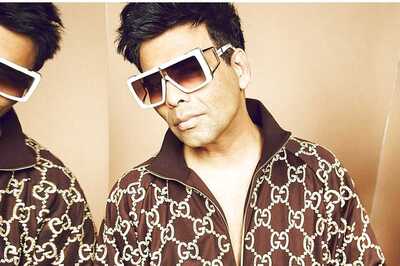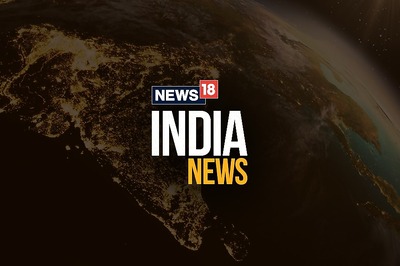
views
Bengaluru: Once is happenstance, twice is coincidence. And when it happens six times in two months, you start thinking: what is it that doesn’t meet the eye?
Between the last week of January and May first week, there has been a rising chorus from different places, different Congress MLAs in Karnataka, that they all would like to see Congress leader and former chief minister Siddaramaiah re-elected.
Asked about it after both phases of polling were completed, Siddaramaiah himself famously said: “But the Chief Minister’s ‘kursi’ (chair) is not ‘khaali’ (empty). So what are they all talking about? It must be just wishful thinking of a few fans.”
Be that as it may, there’s no smoke without fire and the repeated ‘wishes’ from so many of his ‘fans’ – not to mention the many heavyweights of the opposition party BJP constantly talking about the JDS-Congress coalition government falling after May 23 – has fuelled fresh speculations.
It’s an election to the Lok Sabha of course, not to the Karnataka Assembly. But the Congress-JDS coalition in Karnataka has been subsisting on a wafer-thin majority over the past year – an ‘adjustment’ it has been forced to work until ‘at least’ the Lok Sabha elections. A lot depends on the outcome of the polls and it is now as if everyone is waiting for the results before they decide their next moves.
“No one is happy with this coalition – neither the Congress nor the JDS. But they are in it, because their leaders (Rahul Gandhi, HD Deve Gowda) have said so,” admits a Congress source, also wondering if there would be any need to maintain that camaraderie post May 23.
Once the results come out, if the coalition candidates fare badly in the south Karnataka region – and if there is any feeling among workers that they have been betrayed by the ally – things would heat up. For the Congress, it may become a difficult question to retain its identity or cadre morale. In fact, it may become an existential question too.
As it is, many district functionaries of the Congress are upset that they are not able to get their work done – whether it to get public works done in certain areas or processing paperwork on documents like ration cards, caste certificates, for their supporters.
“We do know that there are districts where our leaders say they feel harassed, they are not able get any work done despite our government being in power,” says a senior Congress MLA and top strategist. The worry then for all the MLAs and local functionaries is that their voter-base will get depleted to a large extent as voters may decide to back the JDS to get their work done.
The rift between JDS state president H Vishwanath and Siddaramaiah, who is also the chairman of the coalition’s coordination committee, has widened in the recent weeks. Vishwanath has openly criticised Siddaramaiah, saying, “The Congress must stop trying to sabotage the government. They can do all this in 2022.
The BJP, on the other hand, has been waiting in the wings to form a government. It is the single largest party but has been forced to sit in the Opposition. It has just 104 MLAs in the 224-member Assembly, nine short of the majority required to form the government. Over the past year, there have been repeated attempts to do its ‘Operation Kamala’ – wooing MLAs from other parties to defect to it by promising to get them re-elected on its symbol and later reward them with a ministerial berth.
Top leaders, including former chief minister and BJP president BS Yeddyurappa, ex-CM Jagadish Shettar, ex-deputy-CM KS Eshwarappa and party general secretary Arvind Limbavali, have all, in the last 10 days, prophesied the fall of the coalition government soon after the counting day.
While Limbavali went ahead and told voters in two Assembly constituencies which are seeing by-elections on May 19 to “vote for BJP so that we can increase our overall tally in the Assembly,” Shettar said he doesn’t foresee any need for the BJP to do anything for this government to fall.
“Siddaramaiah has tied a time-bomb on the government which is ticking away. He will press the button himself on May 23 to set it off,” Shettar told newspersons in Hubli.
Limbavli also said that the state will see many more by-elections after these (May 19) by-elections – hinting that many MLAs will quit and choose to walk the re-election path after May 23.
These two Assembly constituencies – Kundgol and Chincholi – have been held by the Congress since the 2018 elections, but the BJP hopes to win both, thereby increasing their tally to 106 in the Assembly. BJP also claims the support of two independents, and that they are then short of just five MLAs to form the government.
However, chief minister HD Kumaraswamy has been strongly dissing these suggestions. At a campaign in Chincholi, he said Yeddyurappa has been setting many ‘mahurats’ and deadlines for the coalition government but all these are past.
“Now he (Yeddyurappa) is saying the next deadline is May 23. After May 23, this coalition will emerge stronger than before,” Kumaraswamy said.
But the JDS sources say remaining in this government may be inevitable – If Deve Gowda becomes the binding factor for a coalition at the Centre after May 23.
“Deve Gowda is the only leader in the country who can bring on board diverse leaders like Mayawati and Mamta and KCR and Stalin. He has proven that by getting them all on the same platform – along with Congress leaders Rahul Gandhi and Sonia Gandhi – to Bengaluru for Kumaraswamy’s swearing-in ceremony,” JDS MLC T A Sharavana keeps pointing out.
If Gowda becomes the glue that binds them all together, the Congress may well have to swallow its pride and grin its way through a few more months of coalition – though the local leadership may not like that too much. The Congress high command may ask the local unit to not precipitate matters, so as to maintain a balance at the national level.
The coalition is doddering at the foundations, but the alternative to being in power, is to not be in power – and leaving the field to the BJP to have its way either in poaching MLAs or form alliances of its own.
What Karnataka is looking to do in the Lok Sabha elections is not how it will contribute to the larger picture of a government at the Centre, but how the numbers at the Centre will change its own government at the state.




















Comments
0 comment